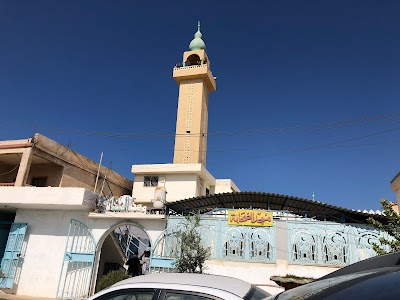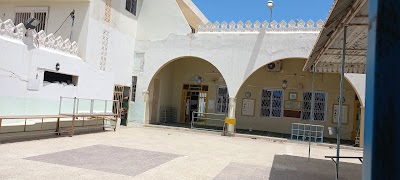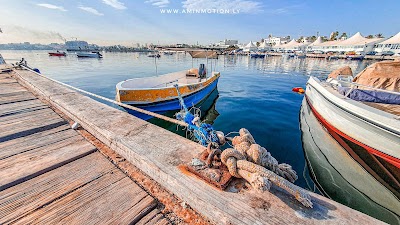Al-Zawiya Mosque (مسجد الزاوية)
Overview
Al-Zawiya Mosque, also known as the Mosque of the Corner, is a cherished Islamic landmark located in the historic district of Tripoli, Libya. This mosque is a stunning representation of Ottoman architecture, beautifully intertwined with local Islamic artistic traditions. Visiting Al-Zawiya Mosque provides a unique opportunity to immerse yourself in the rich historical and cultural heritage of Libya.
Historical Significance
Dating back to the 16th century, Al-Zawiya Mosque was built during the reign of the Ottoman Empire, showcasing the intricate architectural style of the time. The name "Al-Zawiya," which means "The Corner," may refer to its strategic location or the Sufi practice centers known as zawiyas, which served both religious and community purposes. Over the centuries, this mosque has silently witnessed numerous historical events, making it a profound storyteller of Tripoli's past.
A Hub of Learning and Community
Beyond being a place of worship, Al-Zawiya Mosque has played a crucial role in the social and educational development of the community. It has functioned as a madrasa, where esteemed Islamic scholars imparted religious education, significantly shaping the intellectual landscape of Libyan society. The mosque’s library, once brimming with manuscripts and books, served as a testament to the richness of medieval Islamic thought and scholarship.
Architectural Marvel
One of the mosque’s most striking features is its architectural beauty. The exterior boasts a large central dome flanked by smaller domes, epitomizing classic Ottoman design. The graceful minaret offers visitors breathtaking panoramic views of the historic quarter and the Mediterranean Sea. Inside, the mosque is adorned with intricately designed tiles, elaborate woodwork, and stunning arches, each detail narrating its own story. Notably, the mihrab (prayer niche) and minbar (pulpit) are celebrated for their exquisite craftsmanship and intricate detailing.
Serene Courtyard
The mosque's courtyard is a tranquil space often filled with the sounds of chirping birds and the laughter of local children. This open area, surrounded by a colonnade, provides an inviting spot for quiet reflection or friendly conversation, embodying the traditional role of mosques as community hubs.
Experiencing Living Culture
For international visitors, a trip to Al-Zawiya Mosque goes beyond admiring an architectural masterpiece; it’s about experiencing the vibrant culture of Libya. The mosque hosts regular prayers, and during special occasions like Ramadan and Eid, it transforms into a lively center of Islamic traditions and festivities. Observing these practices offers a unique insight into the spiritual life of the local community.
Fascinating Facts
Several intriguing facts enhance the allure of Al-Zawiya Mosque:
1. **Cultural Resilience**: Despite the challenges Libya has faced, Al-Zawiya Mosque has remained a symbol of cultural continuity, having been meticulously preserved and restored over the years.
2. **Architectural Symbolism**: The mosque’s design incorporates elements symbolizing the unity and omnipresence of God, with the central dome representing the vault of Heaven and the arches and columns symbolizing the connection between the divine and earthly realms.
3. **Educational Legacy**: Historically, the mosque’s madrasa drew students from all over North Africa, making it a vibrant center of learning and intercultural exchange, a legacy that still influences the local community today.
4. **Artistic Heritage**: The mosque's tile work and wood carvings reflect a fusion of Ottoman and local Berber artistic styles, featuring geometric patterns and floral motifs rich in symbolism and aesthetic appeal.
5. **Community Engagement**: More than just a religious site, Al-Zawiya Mosque serves as a community anchor, hosting dialogues, educational sessions, and cultural events designed to foster unity and identity.
In conclusion, a visit to Al-Zawiya Mosque promises an enriching experience that beautifully blends history, spirituality, and culture. This magnificent monument stands as a testament to the architectural prowess and cultural depth of the Ottoman period in Libya, while also serving as a vibrant center of community life. For foreign tourists, the mosque is an ideal starting point for exploring the multifaceted history and heritage of the Tripoli District, making it an essential landmark on any Libyan itinerary.






